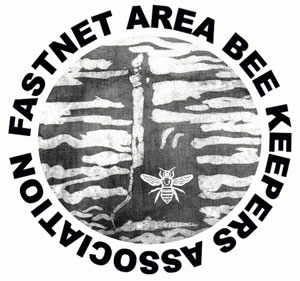Controlling bees is a bit of an oxymoron in itself because the bees generally know what they are going to do. You have to be able to read the ‘sign language’ and do things first, e.g., put up the detour sign!
February–March
Feeding the right stuff and at the correct time is a good start because when bees have enough provisions they jog along nicely and stay happy. Bees will start building up inside the hive as the queen often starts laying as early as mid-to-late February if there is any stir of growth outside their home. Weather and yields vary from year to year. You should start to see the bees bringing in pollen on their back legs, and if you don’t see this maybe assist them with a little feed of pollen in the form of a fondant paste. This can help colony build-up and therefore increase honey yields.
March–April
From now on think bees, because by late March, weather permitting, you will need to be ready to do your first inspection (pending of course, temperature and weather conditions). If you feel that they are building up nicely you might need to put on a queen excluder and a super. Your baseline for subsequent inspections for progress in colony build-up, keep records of egg-laying, overall health, marking and clipping queenie if new. The famous five things you should be looking for during an inspection are:
- Is the queen present and laying?
- Is the brood building up?
- Are there any signs of disease?
- Is there enough space?
- Are there enough stores?
Your inspection sheet will have all these. You can also edit in other items of interest items, e.g., age of queen, docility, behaviour, low swarming, for the purpose of keeping these colony traits for making increases, etc., later on. Spring is a great time to thoroughly check for any abnormal signs relating to bee health and it is advisable to send samples of your bees to DAFM for inspection. This is a great resource and free of charge. Bee health is of paramount importance always and should automatically be part of your apiary checks.
April–June
By April into May and June you need to monitor drone cell build up because queen cells will start to be built when the colony think they are strong enough or maybe they are running out of space. The colony’s natural aim is to reproduce and therefore handling of same is a ‘must’ for the beekeeper. The weather is good, the flowers are out and yielding, the colony overwintered well — the bees swarm with nearly half the workforce just when ‘all hands on deck’ is vital and YES the honey yield will obviously be much less, not to mention the hassle that has been caused to some neighbour who certainly did not want bees in their roof, chimney, barn, etc. Swarm control is an essential part of good beekeeping.
Swarm Control
There are various methods used. Some beekeepers split colonies, some practice the artificial swarm method. There are many methods but you will eventually find one that suits you and your bees. By being part of an association you can get advice from some experienced beekeepers and also the association should have a lecture covering this topic.
Once this task is done, the bees get back to forage again with little loss of honey production, but keep a very close eye because if they are absolutely determined to swarm they will not settle properly.
Working for Honey
Working for honey is the aim of many beekeepers. Ensure you have a few supers (maybe 3 per hive) and frames with foundation (leave out the foundation until last minute) ready, because in a good year bees can fill a super between inspection intervals.
In the event that your colonies are not building up there is a sign you have missed. This may be disease-related, robbing by other colonies, a damaged queen or lost queen, etc. All of these probabilities need attention and correction, and I stress again the importance of keeping accurate records, befriending an experienced beekeeper who will almost certainly offer advice, being part of your association, attending lectures, and reading.
